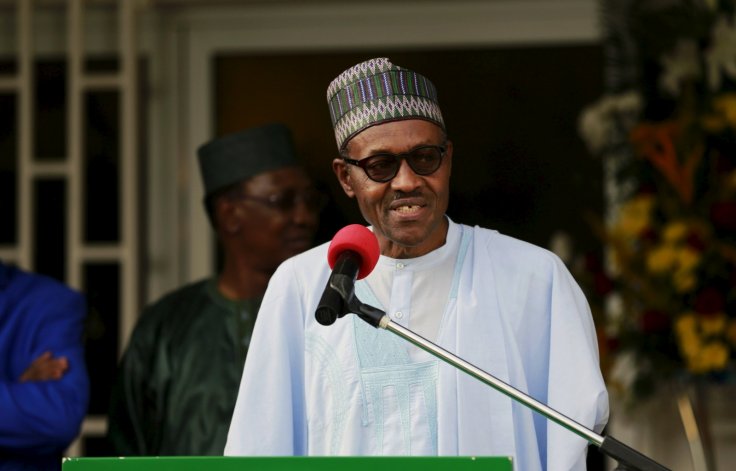Civil rights groups on Friday berated the Muhammadu Buhari-led administration for incurring a N2.2tn domestic debt in the last one year.
The groups, in separate interviews on Friday said that there were no visible impacts of the borrowed money on the country in the period.
The statistics obtained from the Debt Management Office showed that the Federal Government’s domestic debt stood at N10.6tn as of June this year, up from N8.4tn a year ago.
According to the report, the country’s total debt liability rose to N16.29tn in June 2016 from N12.12tn in June 2015.
FG borrowing to pay salaries —Social Action
Expressing concern about the sharp increase in the country’s debt profile, the Head of Abuja Social Action, Vivian Bellonwu-Okafor, said the only response of the administration to the economic recession was “to borrow more money.”
She said that the group was concerned about the circumvention of the laid down legal provisions for loan acquisitions.
Bellonwu-Okafor stated, “The Fiscal Responsibility Act, which outlines the democratic steps that should accompany any loan, is not being respected and so in this regard, loans are taken in a most shoddy and blanket manner without any clear purpose or project line tied to such acquisition(s) as well as cost-benefit analysis, as stipulated by the FRA.
“It is thus not surprising that government has not only taken but also advanced loans for recurrent items such as payment of salaries, sponsorship to foreign trips and conferences etc; this is in clear violation of the FRA which states that loans shall only be acquired for capital expenditure(s).”
She said that it appeared that the government was hiding under “a superfluous guide of so-called recession to embark on unrestrained and unmanageable borrowings.”
The head of Social Action stated that such an approach was “a false solution to the economic problems of Nigeria,” adding that the government was simply postponing the evil day.
Bellonwu-Okafor said, “Debt servicing will soon completely wipe out the country’s capital allocation. This free walk into another debt-trap should, with all experiences of hindsight, be avoided.
“The burden of debt falls on the shoulders of innocent citizens. Nigeria has the wherewithal both in human, natural as well as material and intellectual resources to have a thriving and flourishing economy without undue recourse to dependence-borrowing.”
No visible impact-CD
On his part, the President of Campaign for Democracy, Abdul Usman, said that the borrowing did not show desirable performances by the administration.
According to him, the President and his cabinet of ministers should be held accountable not only in matters that have to do with corruption, but also on debts.
He stated, “Nigerians have never had it this bad and are losing faith in the change promised by the administration. There is hunger almost everywhere in the land. Citizens will want to see published documents or Mr. President should address the nation as we have yet to see the positivity on the budgeted N500bn social welfare.”
‘Buhari’s govt not creative’
The Executive Secretary of the Anti-Corruption Network, Ebenezer Oyetakin said the craze for borrowing had shown that the administration was not creative.
He stated that it was unfortunate that the government, which based its campaign on “change” had reverted to the old practices, which Nigerians voted against.
Oyetakin stated, “The thrust of the change is expected to be largely in the way we handle the economy. The craze for borrowing simply shows how uncreative we are and the lack of innovative thinking economically.
“What would have happened if we were Republic of Cuba that was and is still under total economic, commercial and financial blockade by the USA and its allies for 55 Years? What will happen if the entire world refuses to lend us money? I am against our craze for borrowing as a nation.”
N2.2tn domestic borrowing used to fund budget —Minister
But the Minister of Finance, Mrs. Kemi Adeosun, while responding to enquiries from one of our correspondents, justified the increase in the debts.
The minister was asked what the money was spent on. She simply said, “I guess it would have been used to fund the budget and whatever government is spending money on.”
She said the government would continue to scale up spending in the area of infrastructure such as road, power and railway among others.
Invest borrowed funds in productive ventures, NLC tells FG
The Nigeria Labour Congress urged the Federal Government to utilise the borrowed funds to revamp the economy.
The General Secretary of the NLC, Dr. Peter Ozo-Eson said that while it was not bad to borrow to stimulate the economy during a period of recession, it was important that the money was put to productive use.
He advised that such funds should be committed to the creation of employment opportunities.
Ozo-Eson stated, “Well, with the economy in recession, we have all agreed from the beginning, we need a stimulus to turn the economy around. This is why the 2016 budget is hugely a deficit budget. That implies that you need to borrow in order to create that stimulus. It is the use to which we put what is borrowed that is important.
“If we plough it heavily into infrastructure and in creating employment, in the long run and in the medium- term, it will help to revamp the economy and then restore balance to fiscal operations. So we do not think that borrowing is bad, particularly in the period in which we have to stimulate the economy.”


 Forex2 weeks ago
Forex2 weeks ago


 Naira1 week ago
Naira1 week ago
 Naira4 weeks ago
Naira4 weeks ago
 Company News4 weeks ago
Company News4 weeks ago




 Naira2 weeks ago
Naira2 weeks ago
 Billionaire Watch1 week ago
Billionaire Watch1 week ago




 Naira1 week ago
Naira1 week ago




 Naira3 weeks ago
Naira3 weeks ago




















